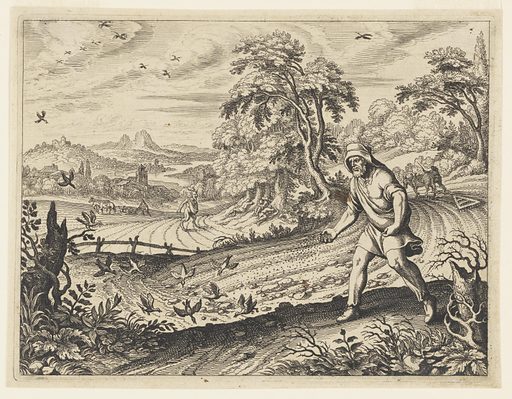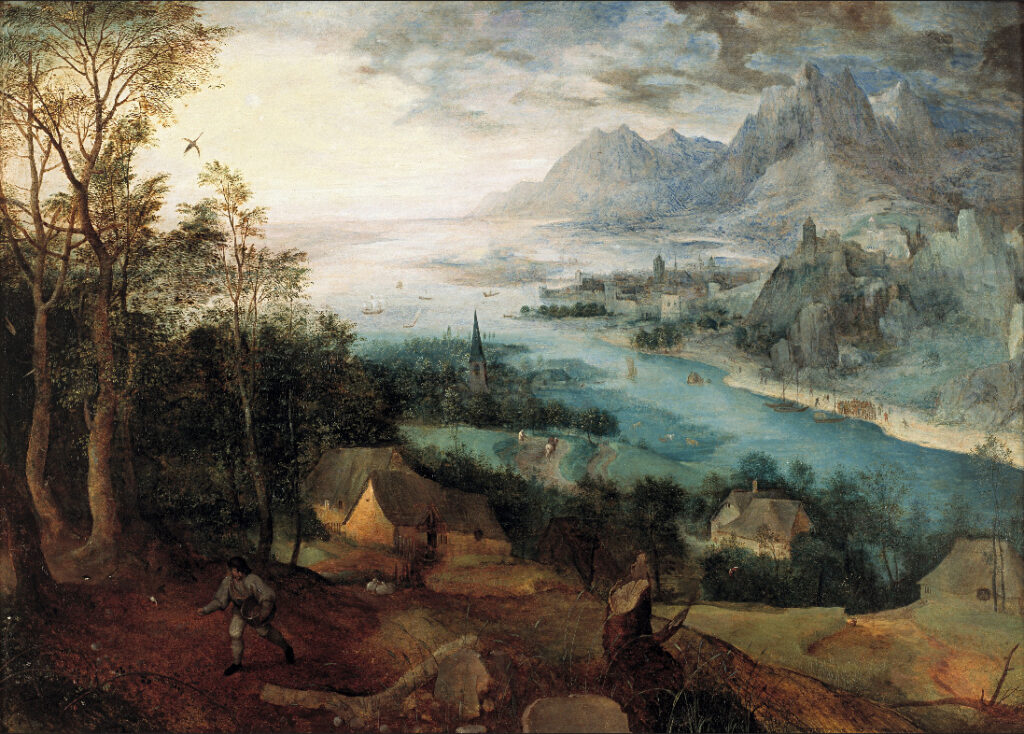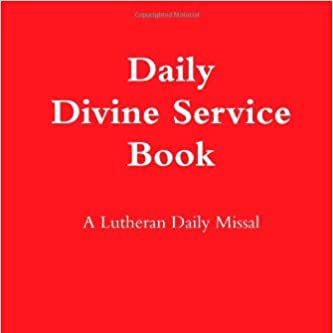The Garden of the Soul

Sexagesmia is the middle of three Sundays contained within the season of Pre-Lent or Gesimatide, the Church’s natural transitional period between Epiphany and Lent. The name Sexagesima is Latin for “sixty” and falls approximately sixty days prior to Easter and just two weeks before Ash Wednesday. Septuagesima and Quinquagesima are the other Sundays of Gesimatide, and all together they comprise the Carnival or Mardi Gras season, which culminates on Shrove (Fat) Tuesday.
This Sunday is significant because it is one step further into the preparation for Lent and instructs Christians in the way more broadly through the unified message to trust not in our works but in the effective Word of God. The Gospel text, which is the Parable of the Sower, is set up by the collect in which we pray for God’s protection against all adversity and to trust not in our own deeds.
Jesus’ Parable of the Sower tells of a man who liberally spreads the seed, which is the Word of God. Some seeds fall along the path, some to the rocks, and others among thorns, and they are snatched away, lack roots, or are choked out, respectively. But still others fall on good soil. Each of the terrains receives the same effective seed, but it is the good soil in which the seed grows up and bears fruit.
Jesus explains to his disciples that the good soil is those who receive the word of God and hold fast to it. They bear fruit with patience, a lesson aptly situated within the broader themes for Pre-Lent when the Church turns with special focus to God’s Word. The catechumens are enrolling for instruction, and the baptized, too, are setting aside more time to pray and worship.
Consequently, this Sunday gives extra encouragement to new and established Christians alike to persist in God’s Word with patient endurance. After all, this is what the Pre-Lent season is all about, not merely sowing the fields as the name Lent (literally “spring”) might suggest but rather tending to the springtime of the soul, as well.

A Brief History
The observance of Pre-Lent or Gesimatide originated in the sixth century when Pope Pelagius I set the three Sundays aside for prayer and fasting during the terror of the Langobards’ invasions. The practice not only stuck in Rome but also spread through the Western Church as a preparation for Lent, even after the initial circumstances for its establishment had ended. While the Roman Catholic Church officially dropped Pre-Lent from its calendar after the Second Vatican Council, the Lutheran Church has maintained its observance.
Over the years Pre-Lent began to take on its own culture and flavor. One way this is seen is in the designation of certain Sundays as suggested deadlines for preparing the larder for Lent. In the Eastern churches the Sundays leading up to Lent are also known as “meatfare” and “cheesefare” and, as the names suggest, mark the weeks during which the meats and cheeses are consumed to prepare the household for the Lenten fasting.
In the West, the idea of Carnival has played a prominent role. In this spirit, Gesimatide is a time devoted to the last gatherings, dances, and shared feasts before Lent until they return at Easter in full fashion.
However the preparation of the home looks for a family, households have often observed some form of extra preparation during the Gesimatide season to reflect to take to heart Jesus’ instruction that the soil that endures patiently bears the good fruit.
Collect
O God, who seest that we put not our trust in anything that we do: mercifully grant that by Thy power, w may be defended against all adversity; through Jesus Christ, Thy Son, our Lord, who liveth and reigneth with Thee and the Holy Ghose: ever one God, world without end. Amen.
Lessons
Resources
Issues, Etc. interview with the Rev. David Petersen on the Sexagesima Sunday
Propers found in Daily Divine Service Book: A Lutheran Daily Missal, edited by the Rev. Heath Curtis
References:
1. Pfatteicher, Philip H. Festivals and Commemorations. Augsburg Publishing House. 1980.
2. Weedon, William. Celebrating the Saints. Concordia Publishing House. 2016.
Images:
1. The Parable of the Sower, Michel Lasne, France, 1650s.
2. Parable of the Sower, Pieter Bruegel the Elder, Netherlands, 1557.




[…] have discussed in our posts about the three Sundays of Pre-Lent (Septuagesima, Sexagesima, and Quinquagesima) that preparation for Lent includes giving thought to how the diet will reflect […]